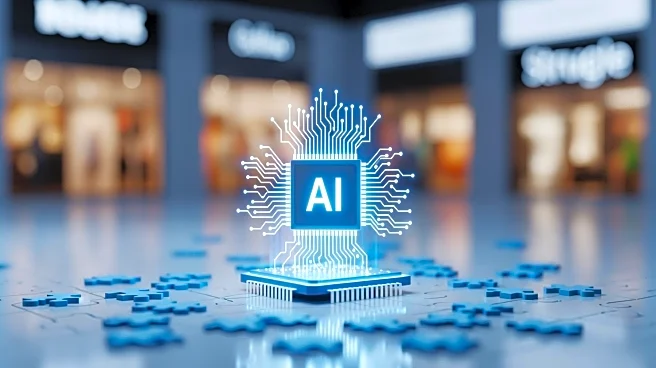What's Happening?
The U.S. economy is experiencing a dichotomy where artificial intelligence (AI) investments are driving GDP growth, while many small businesses face challenges due to high costs and tariffs. Companies
like Nvidia, Alphabet, and Broadcom are significantly contributing to economic expansion through AI-related capital expenditures, which accounted for 1.1% of GDP growth in the first half of the year. However, small businesses, particularly in retail, construction, and hospitality, are struggling with increased costs from tariffs imposed by the Trump administration. Cameron Pappas, owner of Norton's Florist in Birmingham, Alabama, exemplifies this struggle as he navigates higher import costs and consumer spending reductions.
Why It's Important?
The AI boom is creating a significant impact on the U.S. economy, with tech giants driving stock market gains and GDP growth. However, this growth is not evenly distributed, as small businesses, which contribute about 40% of the nation's GDP, are in 'survival mode' due to rising costs and tariffs. This disparity highlights the challenges faced by traditional sectors in adapting to economic shifts driven by technological advancements. The situation underscores the need for policies that support small businesses and address the economic divide exacerbated by rapid technological progress.
What's Next?
As AI continues to drive economic growth, the focus will be on how small businesses adapt to these changes. The upcoming tech earnings reports from companies like Meta, Microsoft, and Alphabet will provide further insights into AI investments and their economic implications. Additionally, the holiday season will be a critical period for small businesses, with consumer sentiment and spending patterns being closely monitored. Policymakers may need to consider measures to support small businesses and mitigate the impact of tariffs and rising costs.










